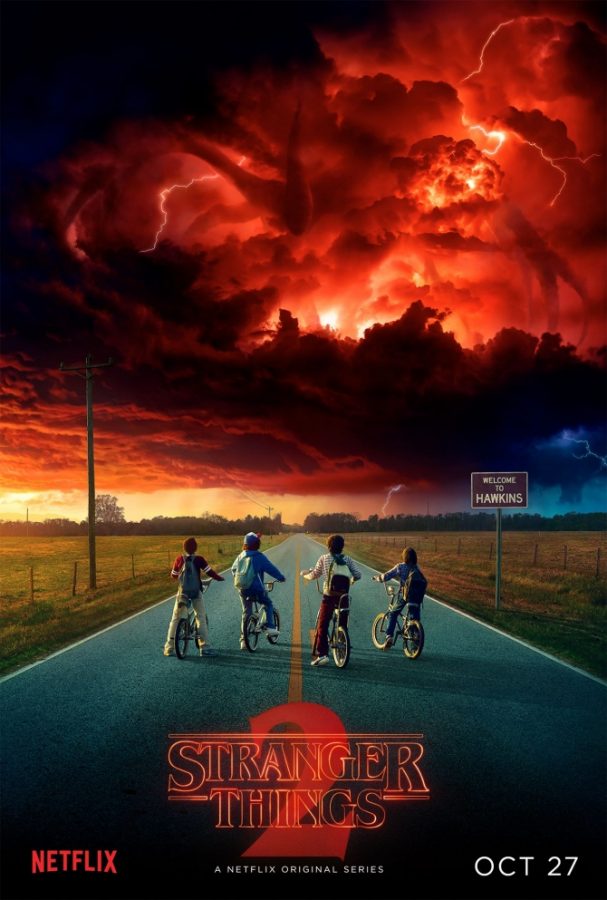WARNING: SPOILERS!
I hopped on the “Stranger Things” bandwagon pretty late, only having watched the first season in a frenzy when I was exposed to all the hype about the second season approaching. I overheard students talking about it in class, saw people on Instagram gushing over the first season, and dealt with all my friends staring at me with awe when I announced I was just starting the first season. And the first eight episodes did not disappoint.
A cool ’80s soundtrack and vibe, a likeable cast with complex stories, and the right amount of sci-fi and horror are what make “Stranger Things” a hit. However, even with these aspects still present, Season 2 was a disappointment, with a convoluted story line, introduction of various characters with little depth, and a predictability that ruins the suspense and horror present in the first season.
Season 2 definitely moves more quickly than the first, introducing the virus that infects Will early in the second episode and with many different issues presented to the characters, but that is also weakens the plot. The story of Eleven discovering her mother, the Dustin, Lucas, and Max love triangle, in addition to the Steve, Nancy, Jonathan confusion all take away from the central plot of the virus affecting Will and the town.
The convoluted plot leaves a few holes in the virus storyline, like where exactly Dustin’s beloved “pollywog” came from, how the virus can control the demon-dogs, will we see justice for Barbara, why Will was the only one affected, and how the tunnels throughout the town came to be.
Since the plot focuses on so many subplots, especially for the development of Elle and her backstory, the main plot is lacking detail and the same level of terror as the first season. All these subplots introduce further characters who seem to deviate from the feel and purpose of the storyline, since Elle’s time spent with Kali and her outcast friends does not do much to serve the plot and adds a darker twist on her personality that seems forced.
Kali’s vengeful warpath, in which she murders those connected to Hawkins Lab, brings in further confusing questions of whether those who are guilty have truly paid the price of justice and if the head of the lab, Elle’s “Papa,” was truly dead. It all seems out of sync with the vibe of small town group of ragtag heroes from the prior season—which is what made it so lovable—and adds more complications to an already crowded plot.
Perhaps Season 3 will further develop these characters, but their brief stint in this season was not well-executed. They just add to a series of loose ends that makes me worry if everything will be tied up in the end.
Finally, various aspects of predictability took away from the story’s suspense and horror, since the audience could easily guess what was coming next. The first season the search for Will and Barbara was suspenseful with eerie overtones of horror from the monster and upside-down world, but this season lacked that tone. Will’s sickness being cured, Nancy’s choosing Jonathan over Steve, Eleven’s reuniting with the gang and Mike, and their victory over the shadow monster were all predictable for the audience, with a feeling of inevitability that made the story a bit trite and less suspenseful.
Overall, Season 2 did not live up to the hype and horror of the first, but hopefully as “Stranger Things” was renewed for season three, the show can recapture its original elements of horror and fear while creating a clear and surprising plot line to live up to the excellent execution of these aspects in Season One.







































































































